Introduction
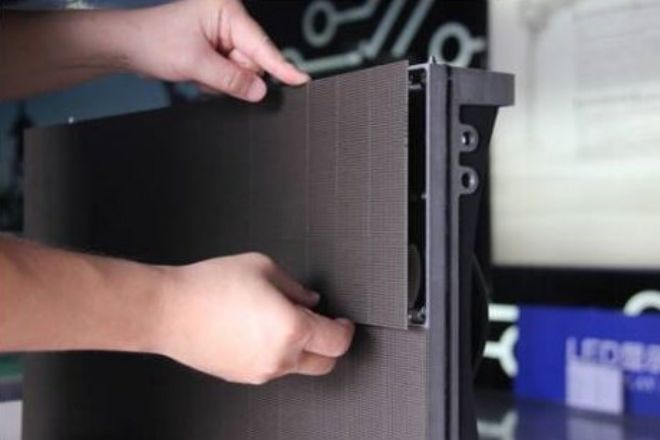
Les écrans LED sont aujourd'hui une source d'information essentielle au quotidien et une plateforme de présentation de produits incontournable pour les annonceurs. Dans une société en constante évolution, leur rôle s'accroît et leur utilisation est de plus en plus répandue. Cependant, un problème se pose : la plupart des gens ne maîtrisent pas les écrans LED et ne les maîtrisent pas. Lorsqu'un problème survient, on ne sait pas comment le résoudre, et on fait donc toujours appel à des professionnels. Bien que cette méthode soit efficace, elle est coûteuse.
En tant qu'utilisateur, pouvons-nous résoudre nous-mêmes certains problèmes mineurs liés aux écrans LED ? Bien sûr, c'est possible, mais il est nécessaire de bien comprendre les écrans LED. Si vous n'y connaissez rien, il est plus sûr de faire appel à un professionnel. L'article suivant résume plusieurs problèmes courants liés aux écrans LED et leurs solutions, dans l'espoir de vous être utile.
1. Court-circuit
Commençons par le problème le plus simple et le plus courant : le court-circuit. Ce problème touche tous les appareils électriques et est à l'origine de nombreuses pannes. En cas de dysfonctionnement d'un écran LED, il faut d'abord vérifier s'il s'agit d'un court-circuit.
Apprenons donc plusieurs méthodes pour détecter les défauts de court-circuit sur les écrans d’affichage LED :
- Méthode de détection de court-circuit
Cette méthode nécessite l'utilisation d'un multimètre, un appareil spécialisé dans la détection des défauts de courant et généralement doté d'une fonction d'alarme. En cas de problème, un voyant rouge s'allume ou un bip retentit. Réglez le multimètre sur détection de court-circuit, puis vérifiez les connexions une par une. En cas de court-circuit, le système d'alarme du multimètre se déclenche.
Cette méthode de détection est relativement courante et efficace, et permet de détecter jusqu'à 90% de défauts. Cependant, il est important de noter que cette méthode doit être effectuée lorsque le circuit est hors tension, sous peine d'endommager le multimètre.
- Méthode de détection de résistance
Cela nécessite de régler le multimètre en position de détection de résistance. Commencez par vérifier une valeur de résistance normale, confirmez-la, puis testez d'autres résistances sur le même circuit imprimé. En cas d'incohérence, le problème se produira dans cette plage. La valeur de résistance est un indice fixe ; il suffit de vérifier si cet indice est le même. Qu'il soit supérieur ou inférieur à l'indice normal, il faut remplacer la résistance.
- Méthode de détection de tension
Réglez le multimètre sur la plage de tension souhaitée, déterminez d'abord la tension normale, puis testez l'indice de tension de différents composants du circuit imprimé. Les écrans LED étant des équipements de précision, un indice différent peut entraîner des dommages. Si la détection est différente de la valeur normale, le problème provient de cette position.
2. Défauts de ligne de connexion et solutions
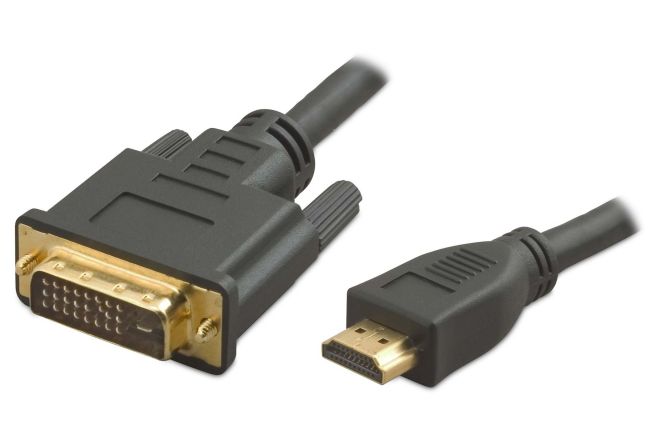
- Il n'y a pas de fenêtre de contrôle d'écran d'affichage LED affichée sur l'ordinateur
Lorsque vous ouvrez l'ordinateur qui contrôle l'écran LED, aucune fenêtre contextuelle ne s'affiche, ce qui peut être dû à un problème de connexion entre l'écran LED et l'ordinateur. La solution est la suivante :
1). Vérifiez si le câble de transmission entre le port série de l'ordinateur, l'USB et la carte d'envoi de l'écran LED est desserré et, si c'est le cas, rebranchez-le.
2). Vérifiez si les interfaces de l'ordinateur, telles que COM, USB, etc., sont endommagées. Si tel est le cas, remplacez-les rapidement.
3) Vérifiez que la carte d'envoi de l'écran LED est intacte et en bon état. Si elle est endommagée, remplacez-la rapidement.
4). Vérifiez si le système de pilote USB est la dernière version ; si ce n'est pas le cas, veuillez mettre à jour vers la dernière version.
- Échec de connexion entre l'ordinateur et le système de contrôle LED
Il arrive parfois que la connexion à l'ordinateur et au système de contrôle LED échoue, et parfois la connexion se rétablisse inexplicablement, ce qui peut être un véritable casse-tête. Voici comment résoudre ce problème.
1). Vérifiez d'abord que le système de contrôle de l'écran LED a démarré normalement et peut être utilisé normalement.
2) Vérifiez que l'interface de la ligne de transmission est normale et qu'il n'y a pas de jeu. Si c'est le cas, corrigez-la rapidement.
3). Confirme que le système de contrôle correct a été sélectionné et s'il y a eu des erreurs de connexion ; confirme que la sélection de la méthode de transmission et du débit de transmission est correcte.
4). Vérifiez si le couvercle du cavalier de l'écran d'affichage LED est desserré ou détaché, et si ce n'est pas le cas, confirmez si le sens de connexion est correct.
Si tous les contrôles ci-dessus sont corrects, il est alors nécessaire de suspecter un problème lié au port série du système de contrôle. Un multimètre doit être utilisé pour tester les différents ports série du système de contrôle LED. En cas de problème, il convient de le faire réparer par un professionnel ou de le faire réparer.
3. Défaut d'affichage
La fonction principale d'un écran LED est d'afficher des vidéos ou des images, mais c'est souvent là que les écrans LED rencontrent le plus de problèmes. Je vais maintenant vous expliquer les défauts courants des écrans LED et leurs solutions.
- Écran noir
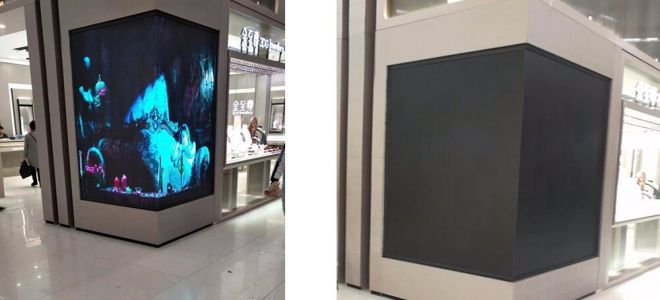
Il s'agit de l'un des dysfonctionnements les plus courants des écrans LED. Si vous rencontrez un écran noir, voici comment procéder.
1). Tout d'abord, vérifiez que votre écran LED est bien connecté à l'alimentation et allumé.
2). Vérifiez que tous les ports série et les lignes de transmission du système de contrôle de transmission vidéo LED ne sont pas desserrés, détachés ou insérés à l'envers.
3) Vérifiez le bon fonctionnement des cartes de réception et d'envoi sur l'écran LED. Si la carte d'envoi fonctionne correctement, le voyant vert reste allumé. Si le voyant vert est éteint ou reste allumé, cela signifie qu'il n'y a pas de signal et qu'il faut la remplacer.
4). Vérifiez si votre connexion par câble réseau ne fonctionne pas correctement, notamment s'il y a une erreur avec la carte DVI.
5) Vérifiez le contenu ci-dessus, redémarrez l'ordinateur et l'écran LED, puis essayez. Si cela ne fonctionne toujours pas, vérifiez le bon fonctionnement du hub.
- Écran d'affichage LED Affichage du code brouillé
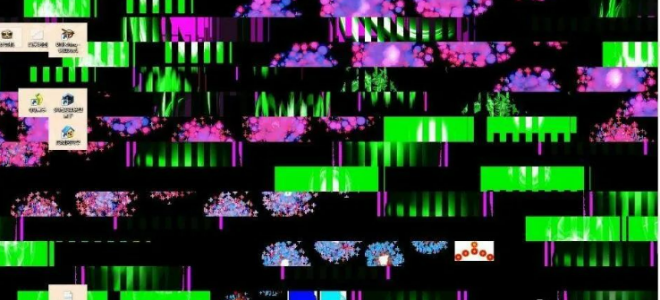
1) Vérifiez d'abord le bon fonctionnement des deux cartes (carte réceptrice et carte émettrice). La méthode d'inspection est identique à celle du point précédent : vérifiez leur voyant d'état. Si le voyant vert s'éteint ou reste allumé, cela indique l'absence de signal.
2) Vérifiez le bon fonctionnement du réseau et la conformité de la qualité des câbles réseau aux normes nationales. Les performances de transmission des câbles réseau non conformes aux normes seront également affectées.
3). Vérifiez si la ligne de signal est correctement connectée et si les performances sont bonnes.
- L'écran d'affichage LED tremble et présente des bandes horizontales
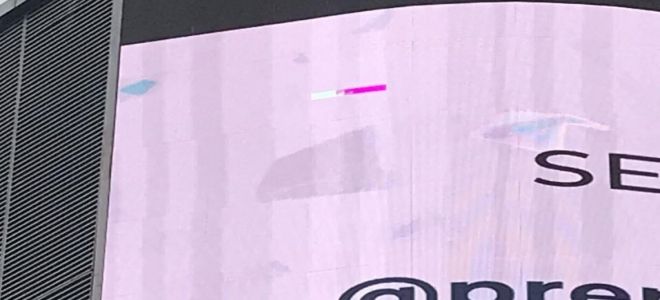
1) La première étape consiste à vérifier le bon fonctionnement des cartes de réception et d'émission et à détecter tout court-circuit. Ce dernier est un phénomène d'interférence de signal.
2). Vérifiez si le fil de terre de l'écran d'affichage LED est cassé et si la connexion est normale.
3) Vérifiez s'il y a des problèmes avec la console de l'écran LED de l'ordinateur, tels que des modifications de paramètres, des opérations répétitives, etc.
4). Vérifiez si la connexion du câble réseau entre l'ordinateur et l'écran d'affichage LED est normale.
Si le problème n'est toujours pas détecté après l'inspection, il est nécessaire de faire appel à du personnel professionnel pour inspecter l'écran d'affichage LED avec des instruments professionnels ou de contacter le fournisseur d'écran d'affichage LED pour résoudre le problème.
- L'écran d'affichage LED apparaît flou
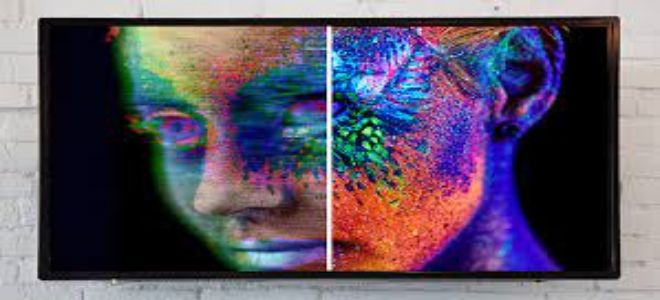
En général, il s'agit d'une image floue due à des erreurs de carte de stockage ou d'envoi. Restaurez les paramètres par défaut de la carte de stockage et réglez correctement la luminosité.
- Câblage de l'écran d'affichage LED et tremblement de l'écran
1). Vérifiez d'abord si les cartes de réception et d'envoi sont normales.
2) Vérifiez que la connexion entre le fil de terre et l'écran LED est normale. Si le fil de terre est défectueux, remplacez-le immédiatement.
3) Vérifiez que la connexion entre le boîtier LED et le câble de signal est correcte. En cas de problème, il est nécessaire de reconnecter ou de remplacer le câble réseau.
4) Vérifiez s'il y a des erreurs ou des modifications dans les paramètres de la console de l'ordinateur et assurez-vous de suivre les instructions du système de contrôle de l'écran LED. Des erreurs peuvent facilement entraîner des problèmes.
4. Défaillance du module
Chaque écran LED est composé de plusieurs modules LED et, en tant que composant essentiel, il peut rencontrer des problèmes. Voyons comment résoudre les problèmes liés aux modules LED.
- La partie affichage du module LED ne s'allume pas
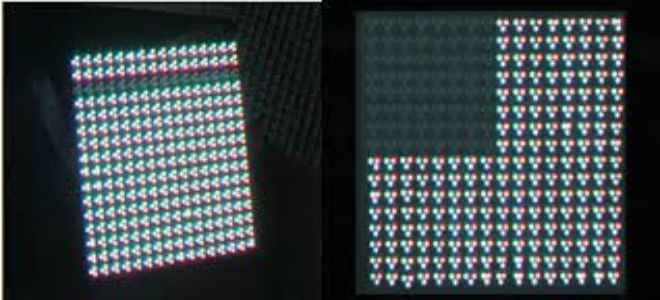
1). Vérifiez si le fil de connexion d'alimentation fonctionne correctement et s'il y a un court-circuit au niveau de la connexion du module.
2) Vérifiez que l'entrée du câble réseau est normale. Si elle est anormale, vérifiez le premier module défectueux.
3) Vérifiez si les ampoules sont éteintes ou si leur luminosité est irrégulière et remplacez-les rapidement, le cas échéant.
- Il y a un problème avec l'affichage d'un seul module
1) En l'absence d'affichage, il est nécessaire de vérifier si l'alimentation du module non affiché est normale et s'il existe une situation où l'alimentation est coupée. Si tel est le cas, il convient de remédier au problème rapidement.
2). S'il y a un problème de couleur avec l'écran, vérifiez s'il y a un problème avec la ligne de transmission du signal, vérifiez le câble réseau connecté et reconnectez-le ou remplacez-le.
- Certains modules affichent des couleurs incohérentes
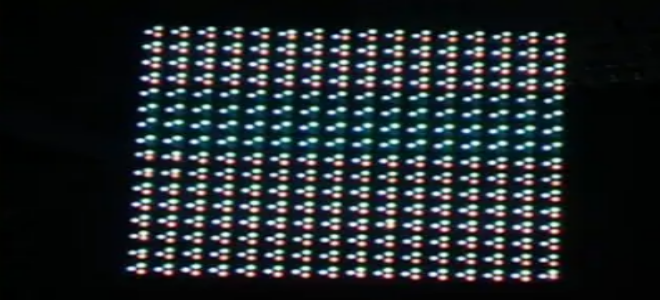
Le problème de couleur le plus probable se situe au niveau du circuit intégré de commande du système de contrôle. Vous pouvez le localiser grâce au schéma du module et le remplacer, et tout ira bien.
- Traitement des points défectueux et remplacement des perles de lampe
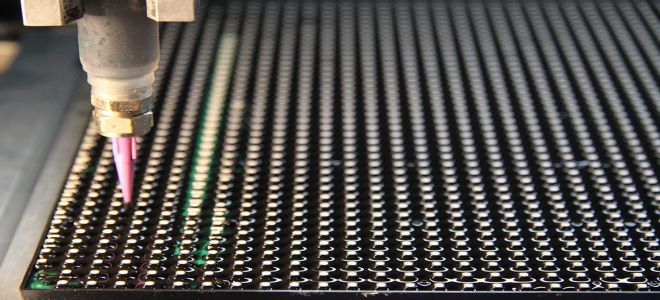
Il s'agit d'un problème courant. Après une longue durée de vie, les écrans LED peuvent présenter un phénomène de lumière morte, c'est-à-dire que les perles lumineuses ne s'allument plus. Dans ce cas, il est nécessaire de remplacer les perles lumineuses pour prolonger la durée de vie de l'écran LED.
Cependant, cette opération peut nécessiter l'intervention d'un professionnel, et les méthodes d'utilisation peuvent varier selon le mode de maintenance de l'écran LED segmenté. Les méthodes spécifiques sont les suivantes :
1). Maintenance frontale :
1-1). À l'aide d'un outil, retirez la protection faciale fixée à la surface de l'écran LED.
1-2). Utilisez des outils pointus, comme une pince à épiler, pour retirer le gel autour des perles de lampe à remplacer afin d'exposer les broches.
1-3). Fixez la perle de lampe défectueuse remplacée avec une pince, chauffez-la avec un fer à souder à environ 40 °C pendant 3 secondes maximum et laissez fondre la connexion entre la perle et le module. Retirez la perle défectueuse. Une température trop élevée ou une durée trop longue peuvent endommager l'écran LED ; soyez donc prudent.
1-4). Sélectionnez une nouvelle perle de lampe et soudez-la avec une tête en étain fondu, puis recouvrez-la du même type de gel pour l'étanchéité.
1-5). Enfin, réinstallez le protège-visage.
2). Maintenance du backend :
2-1). Débranchez d'abord le câble réseau, puis utilisez un outil pour retirer le module par l'arrière. Pour des raisons de sécurité, veillez à ne pas toucher le cordon d'alimentation.
2-2). Après avoir retiré le module, replacez les perles de lampe de la même manière que la partie avant ; après le remplacement, réinstallez le module.
5. Dysfonctionnement du système de contrôle
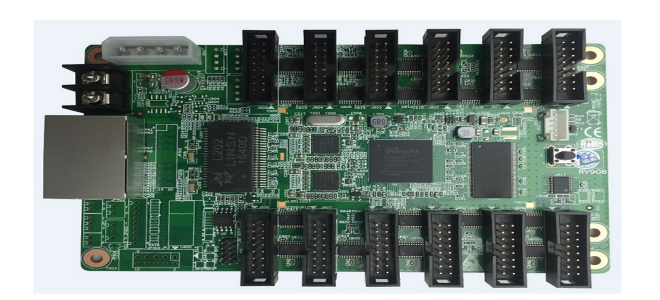
Des articles précédents ont également mentionné que le système de contrôle des écrans LED contrôle la diffusion des images. Comment résoudre ce problème ?
Vérifiez s'il y a des problèmes avec les paramètres de la console LED sur le côté gauche de l'ordinateur ou s'il y a des modifications qui ne sont pas conformes au fonctionnement.
Vérifiez si les connexions du câble réseau, de la carte de contrôle principale et du port de l'ordinateur sont normales.
Vérifiez que toutes les connexions électriques sont normales, que la tension est normale et qu'il n'y a pas de court-circuit. Si l'alimentation du boîtier LED est insuffisante, l'image lumineuse scintillera.
Vérifiez si les cartes de réception et d'envoi fonctionnent correctement et traitez rapidement toute anomalie.
Vérifiez que le câble réseau est bien connecté et qu'il n'est pas trop long. La connexion réseau pour le contrôle synchrone ne doit pas dépasser 80 mètres.
Si tous les contrôles ci-dessus ne sont toujours pas résolus, il peut être nécessaire de remplacer le système de contrôle ou de contacter le fournisseur pour résoudre le problème.
Conclusion
Les écrans LED sont des produits relativement économiques. Bien que leur prix d'achat initial puisse être élevé, ils bénéficient d'une longue durée de vie. Compte tenu de leur utilisation, ils restent très rentables chaque mois.
Tant que le fournisseur que vous choisissez offre une garantie qualité, l'écran LED ne présentera aucun problème de qualité au cours des premières années. En cas de problèmes mineurs, comme des lumières éteintes, vous pourrez les réparer vous-même en cas de problème d'alimentation. Cependant, soyez attentif aux problèmes plus importants ou insolubles. Faites appel à un professionnel et veillez à la sécurité électrique.
Si vous souhaitez en savoir plus sur les écrans d'affichage LED ou acheter des écrans d'affichage LED maintenant, merci de nous contacter!
IBILED est un fournisseur chinois de LED et l'un des plus grands fournisseurs de luminosité en Chine. Forts d'une solide expérience dans l'exportation d'écrans LED, nous comptons des partenaires dans plus de 60 pays. Voici une étude de cas :
